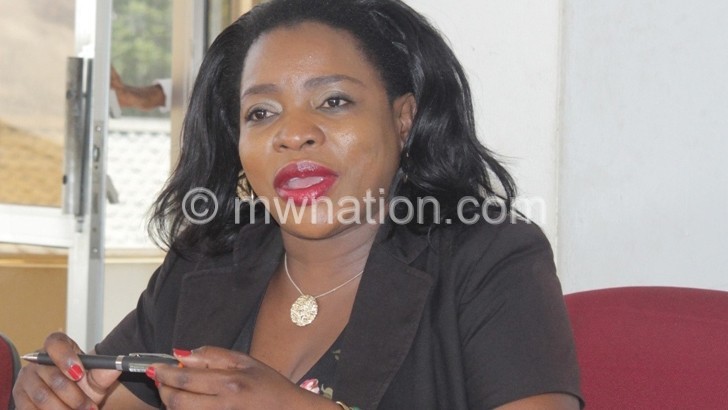K17bn Covid-19 rot laid bare
The Office of the Ombudsman has laid bare how personal allowances dominated expenditure lines for the extra K17 billion Treasury released to finance the Covid-19 Response Plan at the peak of the pandemic in February 2021.
Findings of an investigation the office presented in Lilongwe yesterday show that the sampled five district councils of Lilongwe, Ntcheu, Zomba, Phalombe and Karonga had one thing in common, huge expenditures on allowances at the expense of essential services.

The findings show that in some cases the allowances were collected, but the beneficiary officers carried out no work. There were also unjustified expenditures on fuel.
Ironically, some controlling officers and members of Parliament (MPs), who are supposed to ensure prudent expenditure, are also named in the report as having abused Covid-19 funds.
Presenting the report yesterday, Ombudsman Grace Malera said they focused on five districts due to resource constraints. However, she said they believe that the situation would not be different in the remaining 23 district councils.
She said the report recommended institution of internal audits in all councils within three months as well as forensic audit of all councils and taking administrative actions against all errant controlling officers.
Malera was upbeat that the recommendations will be implemented, saying: “We will strictly ensure that these directives are adhered to. For your information, we have begun to see an improvement in how MDAs [ministries, departments and agencies] adhere to our recommendations and, therefore, you should not be worried that these directives will not be implemented.”
For Lilongwe District Council, the report established that K438.9 million was allocated out of which expenditure on personal protective equipment (PPE) accounted for 54 percent and daily subsistence allowances (DSAs) consumed 24 percent.
The investigation also found that K2.8 million was disbursed as payment for stationery. From the K2.8 million, K2 million catered for DSAs, K400 000 for transport refund, K200 000 hotel charges and K120 000 for refreshments, leaving a meagre K100 000 for the actual stationery.
In yet another peculiar case, the council spent K1.5 million on allowances in the process of procuring consumables worth K600 000.
In Ntcheu, the investigation found that the council received K124.7 million, out of which 31 percent was spent on allowances and only 29 percent covered PPE. The other funds were for logistics such as fuel and airtime.
In February 2021, Ntcheu District Council convened a two-hour meeting where K2.7 million was spent on allowances.
Reads the district’s findings in part: “A review of the cash receipt acknowledgement form show that five and not three members of Parliament signed for sitting allowances and two of the names on this particular form were members of Parliament who did not attend the meeting as their names appeared in the apology section.”
Zomba District Council, on the other hand, had a K200.2 million allocation. The council, according to the report, spent 64 percent on allowances and 20 percent on the procurement of face masks and other PPE.
T h e r e p o r t a l s o established that in Zomba one person was allowed to collect and sign for allowances on behalf of another person.
A specific case is under cheque number 006605 paid on April 14 2021 where one signature was used to collect allowances for 24 officers.
Phalombe District Council received K78.7 million from which DSAs were allocated 26 percent of the total funding while the purchase of face masks got 30 percent.
But despite the district allocating a substantial amount to essential activities, the council is faulted for unexplained over-expenditure on fuel.
Reads the report on Phalombe: “A review of the quantity of the fuel purchased show that a total sum of K4 991 848 was expended on the purchase of fuel. Thus, if fuel was purchased at K899.20 per litre, then a total amount of fuel of 5 551.43 litres was procured. This translates into fuel that would cover a distance of 61 065 kilometres, an equivalent of 984 round trips from Blantyre to Lilongwe.”
Karonga District Council was allocated K86 million and the expenditure breakdown showed that 30 percent was spent on allowances and just 12 percent on essential components such as procurement of facemasks.
The district council also attracted some questions where more people received allowances against the number of available workers.
Reads the report: “Cheque Number 7603 also indicated an activity in which the hospital paid lunch allowances to 250 people that administered vaccines.
“When requested who did the vaccination and how many doses the hospital had, we were informed that the HSAs [health surveillance assistants] carry out the function and Karonga District Hospital has 193 vaccinators.”
Reacting to the findings, economic governance expert Milward Tobias observed that there was gross abuse of Covid-19 funds aggravated by lack of stringent action against wrongdoers.
In an interview yesterday, he said: “If you look at these cases, you have controlling officers among those benefitting from these allowances. How do you expect them to enforce expenditure control mechanisms?”
This is the second investigative report from the Office of the Ombudsman on Covid-19 funds covering the period January to July 2021.
The first focused on March to July 2020 and the National Audit Office also released another report in March 2021 focusing on abuse of K6.2 billion worth of Covid-19 finds.





